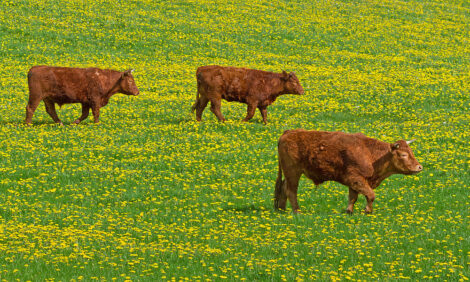



National Hay Report Shows Growing Concern
AUSTRALIA - As the temperatures cool off and pasture growth is becoming restricted concern over fodder supply for winter is increasing. In most of the key dairy regions across the country fodder is becoming very difficult to source of any type and quality, says Dairy Australia.As buyers become more desperate to secure fodder for winter prices are still rising. There is a lot of movement in the market, particularly in southern Australia.
There are stocks of good quality cereal held by exporters in Western Australia, some of this product may become available to the domestic market in the coming months, however freight costs to the east coast will be very high.
We are hearing more and more reports of both buyers and sellers getting burnt in fodder transactions as the market becomes tighter. It is important to ensure that both buyers and sellers look out for themselves by using written contracts for all fodder transactions, especially in current circumstances.
Buyers on the North Coast of NSW are urged to consider their fodder requirements for winter now. Supply is very low locally and right throughout NSW and Southern QLD. Trying to source fodder at the last minute will be a challenge.
Vetch is in very limited supply and trading at over $300/t delivered where it can be sourced. It is worth noting that dry sowing of vetch in the Wimmera-Mallee has commenced but rainfall has been very low through that region. This gives an indication that vetch crops planned for hay in 2013 may perform poorly and be low yielding. Therefore a vetch shortage into 2014 may be likely as well.
Fodder is already in short supply and there will be very little, if any carry over fodder into 2014. Buyers are urged to consider their fodder needs for 2014 and initiate discussions with their suppliers to arrange demand. A fodder shortage in 2014 is likely if the season does not improve heading into spring.
Most hay in storage is under contract; however some lower grades of hay and straw are still available. Again buyers are advised to source their requirements as soon as possible.
Cereal hay and vetch are in shortest supply in the eastern states. Reporting this week has indicated that vetch supplies will not hold on much longer and cereal hay is in very short supply.
As fodder is moved greater distances freight is starting to have a big impact on price. This is reflected in this week's price increases which are fairly even across different fodder types.
Demand for hay from feedlots in QLD is starting to increase as Western QLD and areas in the Northern Territory have stayed extremely dry, with station owners opting to destock rather than freight hay.
Supply of fodder is a particular concern for South East, SA, South West Victoria, Tasmania and Gippsland. In these areas freight is the biggest cost as local growers are struggling to meet the increasing demand for fodder.



